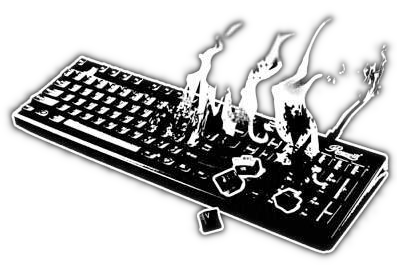During a summer break in the south, Freedom grabbed the opportunity to interview the Anarchist Collective Rouvikonas in Athens
~ Blade Runner ~
The collective has built a reputation for direct actions that range from occupying ministries to smashing up the offices of debt collectors. Formed in 2014, in the wake of Greece’s anti-austerity struggles, they describe their work as bridging the gap between anarchists and the wider social base. In conversation, their style is as direct as their actions.
On the collective’s beginnings:
“Rouvikonas was founded in 2014. At that time, Greece had gone through social and political turmoil. Following the death of the young anarchist Alexis Grigoropoulos, an insurrection broke out in 2008 and a whole generation was radicalised. Then from 2010 to 2014, a big part of the social base took to the streets to fight against austerity measures, but the movement died out and the unrest was channelled back into parliamentary politics and the State.
“The comrades who founded Rouvikonas thought that anarchists had lost a great and rare revolutionary opportunity in those years. They were not able to offer a credible alternative to the State for the people of the social base. So, they started reflecting on the mistakes and dead ends of the anarchist movement, and how to fix them. This is the context that triggered Rouvikonas’ creation: to bridge the gap that existed between anarchists and the social base.”
On the use of social media:
“Our political choice is to publicly claim responsibility for everything we do. Every action is followed by a statement with video and photo material, and a text explaining what we did and why. This serves several goals. By documenting our actions, we prevent the enemy from making false accusations. We can demonstrate exactly what we did, so it’s harder for a judge to condemn us on false charges.
“At the same time, video footage is a powerful tool of communication: people can see with their own eyes what we did, and it can be inspiring. We show our actions to break the state of fear in which the social base is kept by the State and its propaganda mechanisms. The aim is to break paralysis and apathy, and to encourage people to join the struggle.”
On state repression:
“Patterns of repression have changed over the years, depending on the government. … Now there’s an open investigation trying to classify us as a criminal organisation, using changes in the penal code. This is serious — penalties are harsher, and it’s harder to avoid prison by paying fines. But we continue to fight.”
“What really scares them is that we keep bringing in new people. In their own investigation they admit this: every time they identify members after an action, they see faces they didn’t know before. People without history in other groups or demonstrations, of all ages, genders, lifestyles. Not the usual suspects. Ordinary people who had never been political, joining Rouvikonas and taking action.”
On firefighting and disaster relief:
“Following decades of state cuts to the fire department, every year vast regions of Greece are destroyed by fires. People watch their houses burn, firefighters do what they can but with limited resources they cannot do much. When they protest, they get beaten by riot police. This is why three years ago we created a Volunteer Firefighters Sector for forest firefighting.
“We now have three vehicles and a well-trained crew of volunteers. All summer they patrol the countryside and intervene when wildfires break out. In the last two years they saved people, houses, and wild animals. The logic is that of self-organisation: not to depend on the State, but to count on our own forces. As we say in Greece, ‘only the people can save the people’.”
On Antifascism:
“Golden Dawn was defeated. It was defeated in the streets first, and then declared a criminal organisation and outlawed. By then it had already become useless to the ruling class. Militant antifascism is essential, but is not the whole story. There will always be small fascist groups, and you keep them in check in the streets.
“But the real question is: how do we prevent them from gaining ground among the social base? The reason they gained influence was the political void we created. If you’re absent from social and political struggles, people turn elsewhere. If you don’t represent a credible alternative to parties and the State, people look elsewhere for solutions. We must be on the front line of the social and class war every day. To the degree we succeed, people will turn to us and ignore them.”
On Palestine solidarity:
“Greece is a partner in genocide with Israel. The Greek bourgeoisie has historic and existential ties with the Israeli ruling class. Here we have companies collaborating with the Israeli military, and Israeli investors buying property and hotels. As long as such targets exist, there will be ways to hit the Zionist state and its genocidal policies.”
The full interview will be featured in the next issue of Freedom anarchist journal


Add new comment